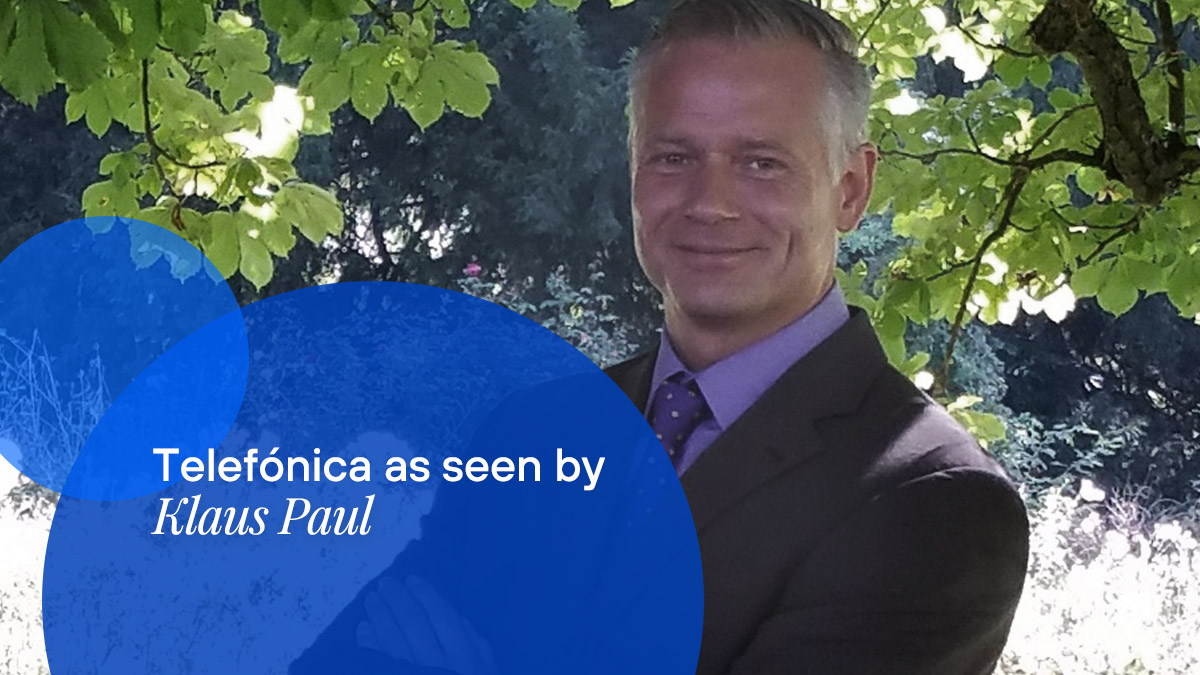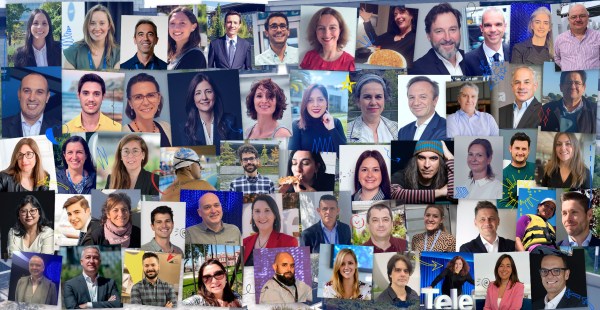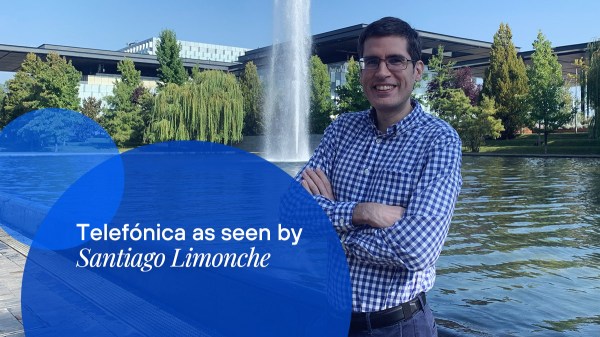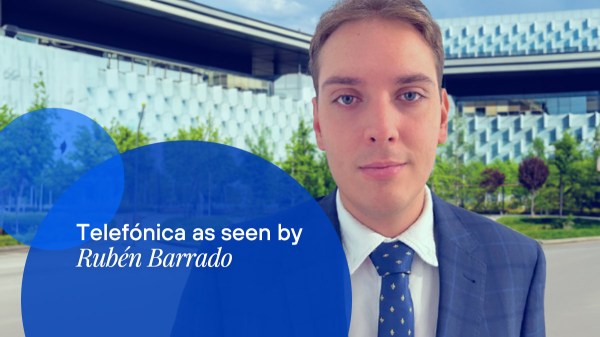How long have you been at Telefónica and how would you rate your time here?
I started on 7 February 2007, back then still at o2. I started as a Junior Team Manager for DSL. o2 had just introduced DSL and my job was to optimize the processes and build a team that could manage the processes. At that time, customer satisfaction at o2 DSL was not yet optimal. A lot of time has passed since then and I have held various positions. As a manager, I was responsible for the activation of SIM cards, the development of activation strategies and the optimization of processes. In 2019, I was at Simplification and introduced and implemented RPA (Robotic Process Automation) at Telefonica Deutschland. I then worked in transformation. Since 2021, I have been working in Digital Enablement & Innovation at Customer Services & Sales and am responsible for RPA (Robotic Process Automation). My main tasks here are the further development of strategies for RPA, the provision of infrastructures, the implementation of automation, etc. and, of course, analyzing the market for new technologies.
Why am I writing this in such detail? I think you can see how varied the tasks at Telefonica are and how quickly time flies. I really enjoy working at Telefonica and fulfilling this role.
Is there any project at Telefónica that you are particularly satisfied with or proud of?
Of course, there are several projects here in which I was actively involved or even responsible, such as the implementation of the customer journeys workshops, in which we defined the way of working, one of the first digitization processes for the customer, e.g. number portability, etc.
We have also successfully completed several migration projects, such as the migration of Hansenet and e-Plus. We are currently involved in one of the largest transformation projects in Europe with the ‘RAITT’ project. We are completely changing our IT landscape and will be working on modern IT systems in the future.
But my ‘favorite project’ is of course the introduction of RPA. I have been in charge of and responsible for this project from the very beginning. A lot has happened here since the introduction in 2019. We selected the right provider, conducted the contract negotiations, set up the infrastructure, built and developed the team and currently have 250 ‘robots’ in use, which process around 60,000 – 90,000 cases every day and are therefore a great support.
What do you think Telefónica has contributed to society?
Telefonica makes a major contribution to society. In my opinion, Telefonica’s mission statement explains this very well: ‘We want to make our world more human by connecting lives. Our mission puts people at the center of everything we do. We want to be a company that customers, employees, suppliers, shareholders and society in general can trust.’
Connectivity has become a matter of course for people. No matter where we are, no matter what we do, we want to share it with others. Be it via pictures, messages or snippets. In addition, there is also the Volunteer Day in Germany, where we as Telefonica employees can help for a good cause. This could be helping in a kindergarten, explaining mobile devices to senior citizens, etc. Anything goes here. Telefonica releases the employees for this purpose. There is also the o2 Run. Here, employees collect steps, kilometers etc. for a week. The steps are then converted into €’s and donated to a good cause.
Where do you see Telefónica in the future?
In the future, Telefonica will have fulfilled its mission. People will be able to get in touch with anyone they want, whenever and wherever they want. This can be done with various tools or new possibilities such as virtual glasses, etc. With its excellent network, offers and innovations, Telefonica provides the prerequisites for this.
Thanks to a modern and reliable IT infrastructure, employees are able to help customers and overcome challenges. We are creating the conditions for this with our new IT program ‘RAITT’.
Could you live without a mobile phone?
Of course I can live without a mobile phone, the only question is how long
The mobile phone has now become a standard of living. It’s no longer just a phone for making calls. I use it every day to process emails, manage all my appointments (both professional and private), communicate with friends and acquaintances via WhatsApp, check the weather forecast, listen to music, watch films, smart home (control my cameras, lights etc.), do internet research, bank transactions and so on and so forth
Help us solve one of humanity’s great enigmas: the potato omelette… With onion or without onion?
From my point of view, there is only one Answer here: Of course with onions
Nominate other colleagues to appear in this section
Thorsten Olthoff. He is a Scrum Master in an agile team and has to take care of countless things at the same time
Michael Gerlach. With his nice and friendly manner, he is a special manager







